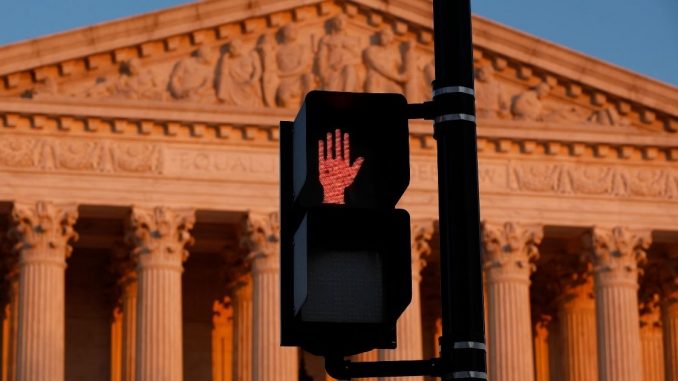
Justice Stephen Breyer is retiring at the end of the Supreme Court’s 2021 term, which probably means late June or early July.
President Joe Biden has promised to replace Breyer with a black woman. It’s a pledge he made on the campaign trail, so give him credit for keeping his word — even if his methods are flawed.
To render race and gender indispensable criteria in selecting a jurist to be one of only nine ultimate interpreters of the Constitution and all the laws that stem from it is a dereliction of duty.
That’s not to say that the best candidate out there may not very well be a black woman — it’s that the odds are against it. Certainly not because black women are in any way intellectually inferior to white men, but because the pool of qualified black women is far smaller.
Beginning with the premise that it would be rare and foolhardy to choose a non-attorney to serve on the Supreme Court, consider that only 4.7 percent of American attorneys are black, and only 37.7 percent are women.
Directly applying the aggregate male-to-female ratio to black attorneys would mean only 1.77 percent of lawyers in the U.S. are black females. But let’s be generous and suggest that half of black lawyers are women. In that case, they would comprise 2.35 percent of all attorneys.
That means in choosing Breyer’s successor, Biden is excluding over 97 percent of the hiring pool from the onset. Again, no one can refute that the absolute best choice may be somewhere within that 2.35 percent — after all, although fewer than 10 percent of professional golfers are black, African-American Tiger Woods is widely considered the sport’s greatest of all time — but the odds are against it.
I am Greek-American — born in the U.S. to parents who were born in Greece. I’ve been an educator for decades. As a history and political science professor, my area of expertise is the American presidency, not, say, ancient Egypt.
Nonetheless, because I’m a trained historian with veteran teaching skills, I’m sure if a university hired me to teach about ancient Egypt, I would do an adequate job. In a large hiring pool open to everyone, I would justifiably lose out to a bona fide expert on ancient Egypt. But what if that pool were limited to Greek-Americans? In that case, my chances would skyrocket.
Adequacy, however, is not the goal. Excellence is. And if Biden’s pick turns out to be less influential to the court’s decisions than Breyer has been, that’s good news for those who favor strict constructionism and originalism.
Many if not most conservatives are not going to be happy with Biden’s choice, no matter who it is. After all, if they call Chief Justice John Roberts and Justice Brett Kavanaugh “liberal” because the likes of Tucker Carlson tell them so, they’re not about to view Biden’s selection as the next Antonin Scalia.
In fact, Breyer’s successor probably will be more of an ideological activist. Contrary to what many on the right believe, Breyer was somewhat of a pragmatist and only slightly left of center as compared to, say, Justice Sonya Sotomayor.
Another Sotomayor-type on the court might seem like a wash with Breyer leaving, but he was more influential in shaping decisions than his successor might be, which will further strengthen the voice of the court’s conservative supermajority.
Despite what many casual observers outside the legal community have been led to believe, the justices are not ideological caricatures who vote along strict party lines; they are well-qualified jurists who often possess brilliant legal minds. Accordingly, a replacement with more partisan fervor but less judicial gravitas than Breyer would be a blow to the court’s more liberal wing.
Unless Biden bucks the odds and picks the judicial version of Tiger Woods.
The views expressed in this opinion article are those of their author and are not necessarily either shared or endorsed by the owners of this website.
